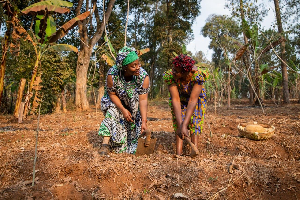Nigeria’s Minister of Finance and Coordinating Minister for the Economy, Dr. Ngozi Okonjo-Iweala, has asked policymakers to be wary when negotiating natural resource contracts.
She noted with concern that there is information asymmetry in the negotiation of contracts, which tends to profit foreign entities that want to invest in the natural resource sector of the economy.
She therefore asked state officials to build their capacity in order to negotiate natural resource contracts that are beneficial to the well-being of the populace.
“We (African policymakers) need to do our homework thoroughly before we begin contract negotiations with foreign oil or mining firms.
“In many cases, there is a wide information asymmetry between foreign contractor firms and the host government officials.
“So African government officials should invest more in building technical capacities and improving negotiation skills before entering into contract negotiations,” she said.
A former Managing Director of the World Bank, she has over the years seen some risks inherent in contract negotiations that government officials have failed to notice.
“Policymakers and leaders need to be more transparent in the negotiations of natural resource mining contracts by allowing open and competitive bidding for mining concessions.
“We must stop these practices of bartering mining licences for infrastructure projects because they are not transparent and just too difficult to quantify and to evaluate! And trust me, many so-called friends will come with offers which you must investigate carefully,” she warned.
Ghana’s economy is rich in oil and gold, which cumulatively yielded US$8.5billion at the end of last year, making the extractive sector the largest contributor to the country’s foreign exchange earnings, according to the Bank of Ghana.
However, activities in the oil and mining sectors are largely driven by foreign firms, whose operations have been questioned by policy analysts -- who contend foreign firms are exploiting the natural resource base of the country due to gaps in the contracts.
Commodity prices have risen about 75 per cent in real terms since 2000, which presents a unique opportunity for governments to mobilise home-generated wealth from natural resources for sustainable development.
But that has not been the case, prompting government to formulate policies such as the windfall profit tax to enable it to tap into the current boom in commodity prices.
Dr. Okonjo-Iweala however commended the government for enacting legislations that could ensure the country maximises its benefit from especially the oil sector.
Business News of Wednesday, 27 February 2013
Source: B&FT













